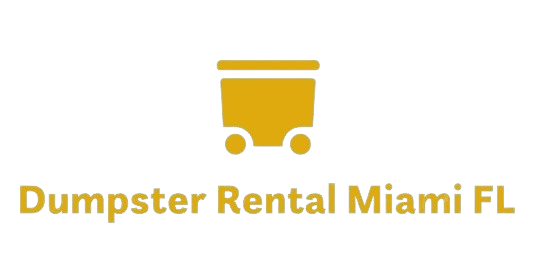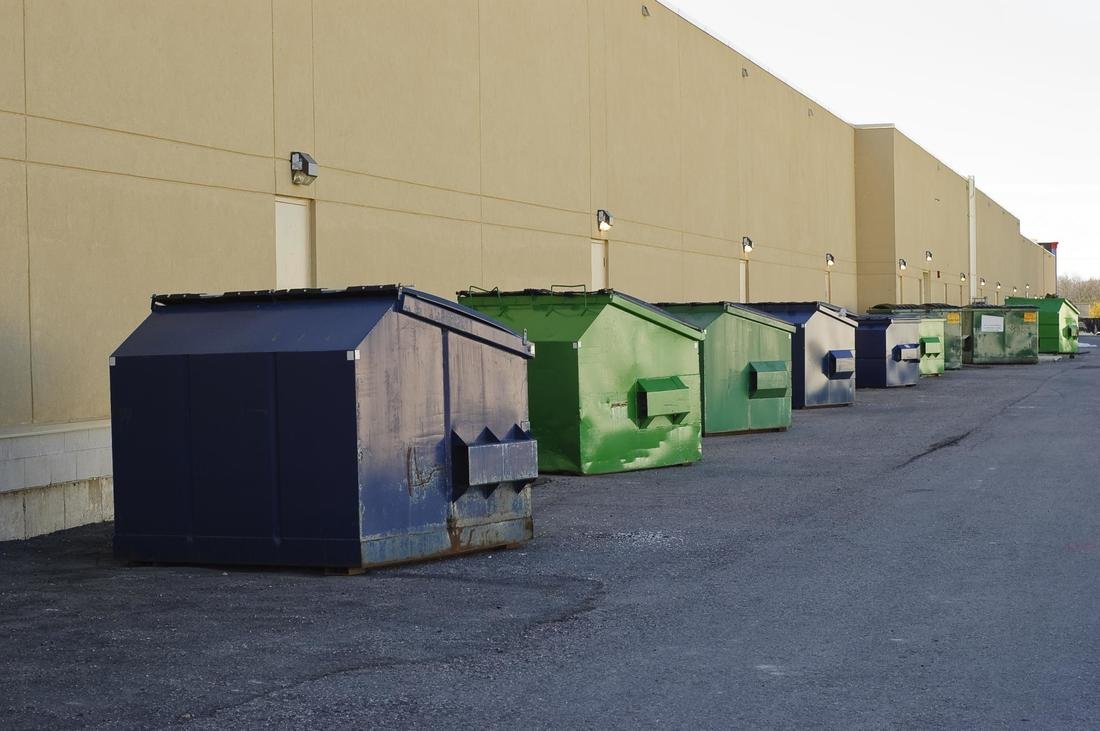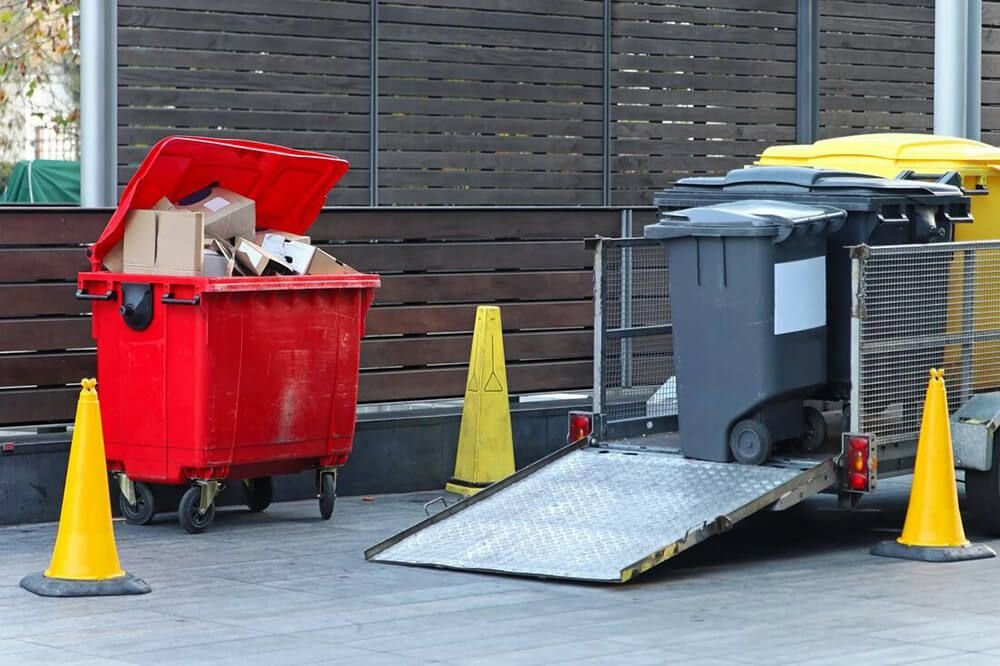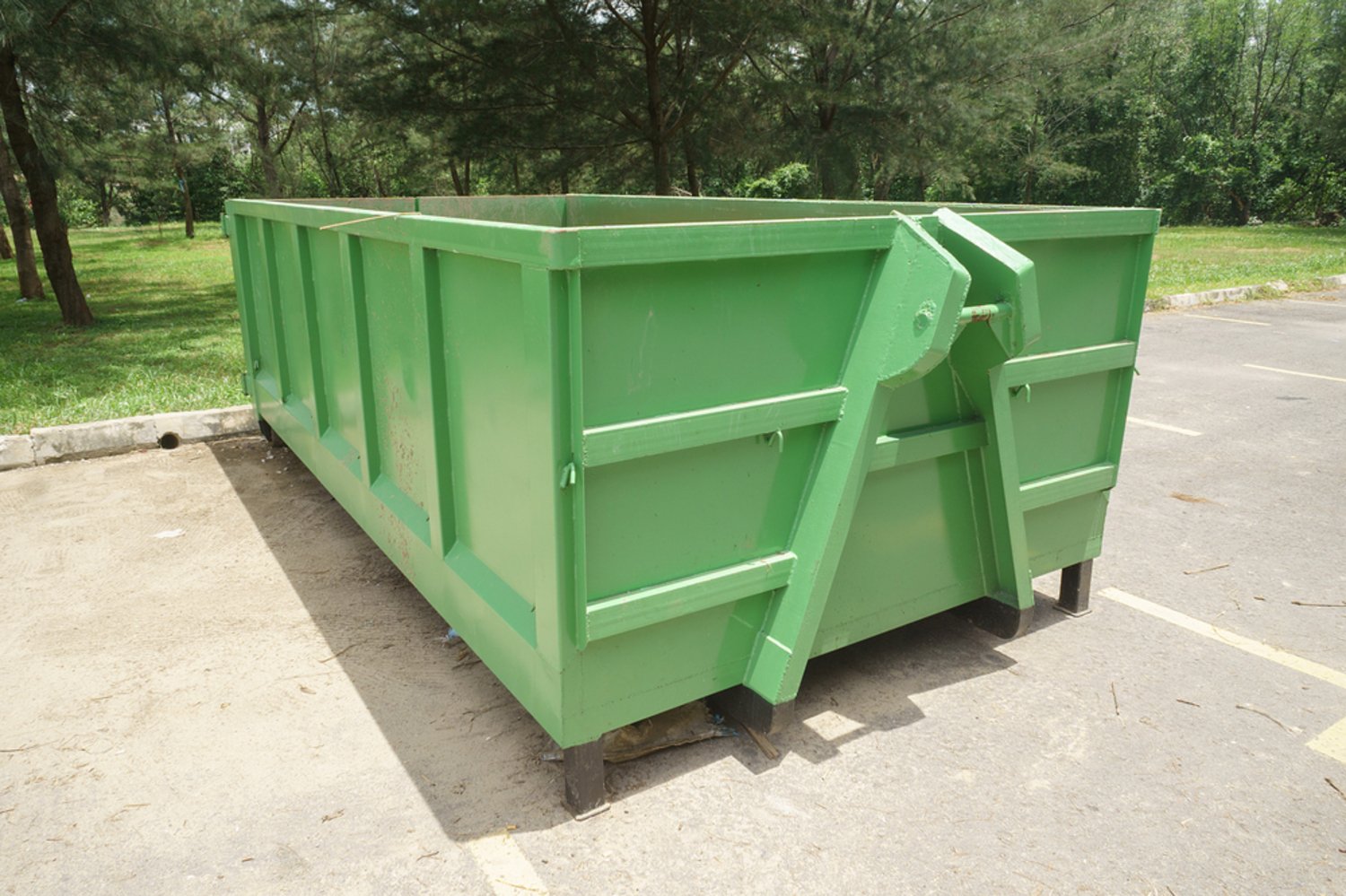Dumpster rental services are an essential part of waste management in urban areas, providing a convenient solution for disposing of large quantities of unwanted materials. However, it is crucial to be aware of the regulations and guidelines surrounding dumpster usage to ensure the safe disposal of items. One significant aspect that requires careful attention is the proper handling and disposal of chemicals. This article aims to highlight the prohibited items for disposal in Miami dumpsters, with a particular focus on chemicals, through examining real-life scenarios and discussing potential consequences.
Imagine a scenario where a local business owner decides to renovate their establishment by repainting the walls. After completing the task, they find themselves faced with several buckets filled with leftover paint and thinners. Unsure about how to dispose of these chemical substances responsibly, they make a hasty decision and toss them into their rented dumpster without considering the possible implications. Unfortunately, this action could have severe repercussions not only for the environment but also for public health and safety. Understanding which chemicals are prohibited from being disposed of in dumpsters can help prevent such situations and promote responsible waste management practices throughout Miami’s communities.
Why prohibited items are a concern in dumpster rental
Title: Chemicals in Miami Dumpster Rental: Prohibited Items for Disposal
Why prohibited items are a concern in dumpster rental
When it comes to renting dumpsters, understanding the importance of prohibited items is crucial. One example that highlights this concern involves a construction site where hazardous chemicals were improperly disposed of in a rented dumpster. Despite being unaware of the specific rules regarding waste disposal, the consequences and potential risks associated with such actions became evident.
To address this issue effectively, it is essential to explore why prohibited items pose such concerns in dumpster rental. Firstly, certain materials can be harmful to human health and safety. For instance, substances like asbestos or lead-based paint require specialized handling due to their toxic properties. If these items are mistakenly placed in regular dumpsters without proper precautions, they may expose workers or individuals who come into contact with the waste to serious health hazards.
Secondly, improper disposal of certain materials can have detrimental environmental impacts. Substances such as oil, gasoline, or other flammable liquids can contaminate soil and water sources if not handled correctly. In addition, disposing of electronic waste (e-waste), which contains harmful components like heavy metals and toxic chemicals, can contribute to pollution when discarded alongside regular trash.
- Releasing hazardous substances into the environment poses long-term health risks.
- Poor disposal practices can result in costly clean-up efforts.
- Mishandling prohibited items undermines recycling and sustainability initiatives.
- Improper waste management diminishes overall community well-being.
Furthermore, let us examine a table illustrating some commonly encountered hazardous chemicals that should never be thrown away in Miami dumpsters:
| Type of Hazardous Chemical | Potential Health Risks | Environmental Impact |
|---|---|---|
| Paint Thinners | Respiratory issues | Soil contamination |
| Pesticides | Neurological damage | Water pollution |
| Batteries | Heavy metal poisoning | Soil and groundwater pollution |
| Cleaning Agents | Skin irritation, respiratory issues | Aquatic life contamination |
By understanding the potential consequences associated with prohibited items in dumpster rental, it becomes evident that proper waste disposal is crucial to protect both human health and the environment.
In light of this discussion on why prohibited items are a concern, let us now explore the types of hazardous chemicals not allowed in Miami dumpsters. Understanding these specific substances will help ensure responsible waste management practices while renting a dumpster for various purposes.
Types of hazardous chemicals not allowed in Miami dumpsters
Chemicals in Miami Dumpster Rental: Prohibited Items for Disposal
Why prohibited items are a concern in dumpster rental:
Improper disposal of hazardous chemicals can have serious consequences, both for human health and the environment. Let’s consider a hypothetical scenario where an individual decides to dispose of a container filled with old paint cans into a rented dumpster without realizing that it is considered a prohibited item. This seemingly innocent act could lead to detrimental effects if those paint cans contain harmful substances such as lead or volatile organic compounds (VOCs). Once the dumpster is emptied at the landfill, these chemicals may seep into the soil and contaminate groundwater sources, posing risks to nearby ecosystems and potentially entering our drinking water supply.
Types of hazardous chemicals not allowed in Miami dumpsters:
To prevent such environmental contamination, there are strict guidelines regarding which hazardous chemicals are not allowed in Miami dumpsters. These include but are not limited to:
- Paints and solvents: Many paints contain heavy metals like lead or mercury, while solvents often consist of toxic substances like benzene or trichloroethylene.
- Batteries: Both automotive batteries and household batteries can contain corrosive acids and heavy metals that need proper handling and recycling.
- Pesticides: These chemical-based products designed to kill pests can be harmful to humans, animals, and plants if disposed of improperly.
- Cleaning agents: Certain cleaning products may contain harsh chemicals that pose hazards when released into the environment.
The table below illustrates some examples of commonly used products containing hazardous chemicals that should never be thrown into dumpsters:
| Household Chemical | Hazardous Component(s) | Potential Health Risks |
|---|---|---|
| Old paint | Lead / VOCs | Neurological disorders |
| Car battery | Acid / Lead | Skin burns |
| Insecticide | Toxic pesticides | Respiratory problems |
| Drain cleaner | Corrosive agents | Eye and skin damage |
It is essential for individuals to understand the potential dangers associated with improper disposal of hazardous chemicals. By adhering to the guidelines provided by Miami dumpster rental companies, we can contribute to protecting our health and preserving the environment.
Transition into the subsequent section about “Environmental impact of improper disposal of chemicals”:
Awareness of the environmental consequences resulting from mishandling hazardous chemicals is crucial. Understanding how these substances can harm ecosystems will further emphasize the importance of responsible disposal methods.
Environmental impact of improper disposal of chemicals
Having discussed the types of hazardous chemicals that are prohibited in Miami dumpsters, it is essential to understand the potential environmental consequences associated with their improper disposal. By examining a hypothetical scenario and exploring the wider implications, we can gain insight into why these restrictions exist.
Consider a situation where an individual disposes of various prohibited chemical substances, such as paint thinners, pesticides, batteries, and motor oil, into a dumpster rented from a company operating within Miami. These items may contain harmful components that can leach into surrounding soil or contaminate water sources if not handled properly. The negligent act of disposing them improperly poses significant risks to both human health and ecosystem integrity.
To further highlight the gravity of this issue, let us examine some key points regarding the environmental impact caused by irresponsible disposal practices:
- Groundwater Contamination: Hazardous chemicals discarded improperly in dumpsters have the potential to seep through landfill liners and infiltrate groundwater supplies. This contamination can persist for years, rendering drinking water unsafe and posing long-term health hazards.
- Soil Degradation: When prohibited chemicals come into contact with soil due to inadequate waste management procedures, they can disrupt crucial biological processes necessary for plant growth. Moreover, toxic compounds present in these substances may accumulate over time, leading to reduced fertility and biodiversity loss.
- Air Pollution: Certain chemicals emit volatile organic compounds (VOCs) when released into the atmosphere during decomposition or incineration processes. These VOCs contribute to air pollution, exacerbating respiratory problems and potentially causing other adverse health effects.
- Wildlife Harm: Improperly disposed chemicals can be ingested by wildlife species either directly or through contaminated food sources, resulting in negative impacts on their reproductive systems and overall well-being.
To further emphasize the significance of responsible disposal practices, the table below provides a snapshot of potential environmental consequences associated with improper chemical waste management:
| Environmental Impact | Consequence |
|---|---|
| Water contamination | Polluted drinking water, aquatic ecosystem disruption |
| Soil degradation | Reduced fertility, loss of biodiversity |
| Air pollution | Respiratory problems, degraded air quality |
| Wildlife harm | Reproductive disorders, adverse effects on wildlife |
Considering these risks and the interconnectedness of our environment, it becomes evident why Miami prohibits certain chemicals from being disposed of in dumpsters. Proper handling and disposal methods are crucial to safeguarding both human health and the natural world we inhabit.
Understanding the environmental implications is only one aspect; however, there are also legal consequences that individuals must be aware of when disposing prohibited items in dumpsters. By exploring this topic further, we can gain insight into how such actions are dealt with within Miami’s jurisdiction.
Legal consequences of disposing prohibited items in dumpsters
Environmental Impact of Improper Disposal of Chemicals
Improper disposal of chemicals can have severe environmental consequences, posing risks to both human health and the ecosystem. One example that highlights these potential dangers is a case where an individual disposed of several containers filled with hazardous chemicals in a dumpster located near a residential area in Miami. The chemicals leaked from the containers, contaminating nearby soil and water sources.
The environmental impact of improper chemical disposal extends beyond immediate contamination. It can lead to long-term damage to ecosystems. When hazardous substances seep into the ground, they can infiltrate underground water reservoirs or flow into nearby bodies of water through runoff during rainstorms. This pollution harms aquatic life and disrupts delicate ecological balances.
- Soil erosion and degradation
- Water pollution affecting marine life
- Air pollution due to chemical reactions
- Contamination of food chains
Additionally, improper disposal may result in legal repercussions for those who violate waste management regulations. To emphasize this point, we present a table outlining some potential legal consequences associated with improper disposal practices:
| Legal Consequences | Description |
|---|---|
| Fines | Individuals or businesses found guilty of illegal dumping could face substantial financial penalties. |
| Criminal Charges | If deemed intentional or particularly harmful, individuals may be charged with criminal offenses. |
| License Revocation | Professionals holding permits or licenses related to waste management may have their credentials revoked. |
| Civil Liabilities | Those responsible for damages caused by improper disposal may also face civil lawsuits seeking compensation. |
In light of these significant environmental and legal concerns surrounding improper chemical disposal, it is crucial to explore safe alternatives for disposing of chemicals in Miami without endangering public health or harming nature’s balance.
Safe alternatives for disposing of chemicals in Miami
Legal consequences of disposing prohibited items in dumpsters can be severe and may result in fines, penalties, or even criminal charges. To illustrate this point, let’s consider a hypothetical scenario involving an individual who disposed of chemicals in a Miami dumpster rental without realizing they were prohibited items.
In our example, John, a homeowner in Miami, decided to clean out his garage and dispose of various household chemicals he no longer needed. Without checking the guidelines provided by the dumpster rental company, John proceeded to throw these chemicals into the dumpster along with other waste materials. Unbeknownst to him, many of these chemicals are considered hazardous and should not be disposed of in regular dumpsters.
The repercussions for John’s actions were significant. Once the dumpster rental company discovered the presence of prohibited chemicals during their routine inspection before disposal, they promptly reported it to local authorities. As a result, John was fined $1,000 for improper disposal of hazardous materials and faced additional legal expenses related to environmental damage caused by the improper handling.
To avoid finding yourself in a similar situation, it is crucial to familiarize yourself with the list of prohibited items for disposal when renting a dumpster in Miami. Here are some examples:
- Chemicals: This includes paints, solvents, pesticides, cleaning agents, motor oil, batteries (including car batteries), and any other substances that could pose a risk to human health or the environment.
- Electronics: Items such as televisions, computers, printers, and cell phones contain components that can be harmful if improperly disposed of due to toxic materials like lead or mercury.
- Construction debris: Materials like asbestos-containing insulation or roofing tiles must be handled separately because they require specialized removal procedures mandated by law.
- Medical waste: Sharps containers used for needles or other medical supplies cannot be thrown into regular dumpsters due to potential risks associated with disease transmission.
Understanding what is allowed and what is not will help you make informed decisions about proper disposal methods. To further illustrate this point, consider the following table highlighting some common prohibited items and their potential environmental impact:
| Prohibited Item | Environmental Impact |
|---|---|
| Chemicals | Contamination of soil and water sources |
| Electronics | Release of hazardous substances into the environment |
| Construction debris | Improper handling leading to asbestos exposure |
| Medical waste | Potential spread of infectious diseases |
By being aware of these consequences and understanding what should not be disposed of in a dumpster rental, you can play an essential role in protecting both yourself and the environment.
Transitioning into the subsequent section about “Tips for identifying prohibited items for disposal in Miami dumpsters,” it is crucial to develop good habits when determining which materials are suitable for disposal. By following simple guidelines and paying attention to specific indicators, you can avoid inadvertently disposing of prohibited items that may have legal or environmental implications.
Tips for identifying prohibited items for disposal in Miami dumpsters
Having discussed safe alternatives for disposing of chemicals in Miami, it is essential to be aware of the prohibited items that should never be discarded into a dumpster. Understanding these restrictions helps maintain public safety and protects the environment. In this section, we will explore some tips to identify such prohibited items.
Prohibited Items for Disposal:
To illustrate the importance of adhering to proper waste disposal guidelines, let’s consider an example scenario involving a chemical spillage within a residential area. Imagine if hazardous substances were carelessly disposed of through regular means, contaminating nearby soil and water sources. Such negligence could have severe consequences on both human health and ecosystem stability.
Recognizing the gravity of improper disposal practices, it becomes crucial to educate ourselves about what should not be placed into dumpsters. Here are some common examples of prohibited items:
- Chemicals: Including but not limited to paint thinners, solvents, pesticides, motor oil, batteries.
- Electronic Waste (e-waste): Such as computers, televisions, printers, and other electronics containing harmful components.
- Medical Waste: Including used syringes or needles, expired medications.
- Flammable Materials: Like gasoline cans or propane tanks.
It is important to note that each municipality may have specific regulations regarding acceptable materials for disposal; thus checking with local authorities can provide additional guidance tailored to your region.
Evaluating whether an item is permitted for dumpster disposal requires careful consideration. To simplify this process, here is a table outlining various categories commonly encountered when assessing waste suitability:
| Category | Permitted | Not Permitted |
|---|---|---|
| Household Trash | ✔️ | ❌ |
| Yard Waste | ✔️ | ❌ |
| Construction Debris | ✔️ | ❌ |
| Hazardous Materials | ❌ | ✔️ |
This table serves as a visual aid, emphasizing the importance of correctly identifying prohibited items before discarding them.
In summary, recognizing and acknowledging the prohibited items for disposal is crucial to maintaining public safety and protecting our environment. By ensuring that only permissible materials are placed into dumpsters, we can contribute towards sustainable waste management practices. Let us now explore further insights on responsible waste disposal habits in the subsequent sections.
(Note: Please remember to format the bullet point list and table using markdown syntax when implementing this response outside of plain text.)





